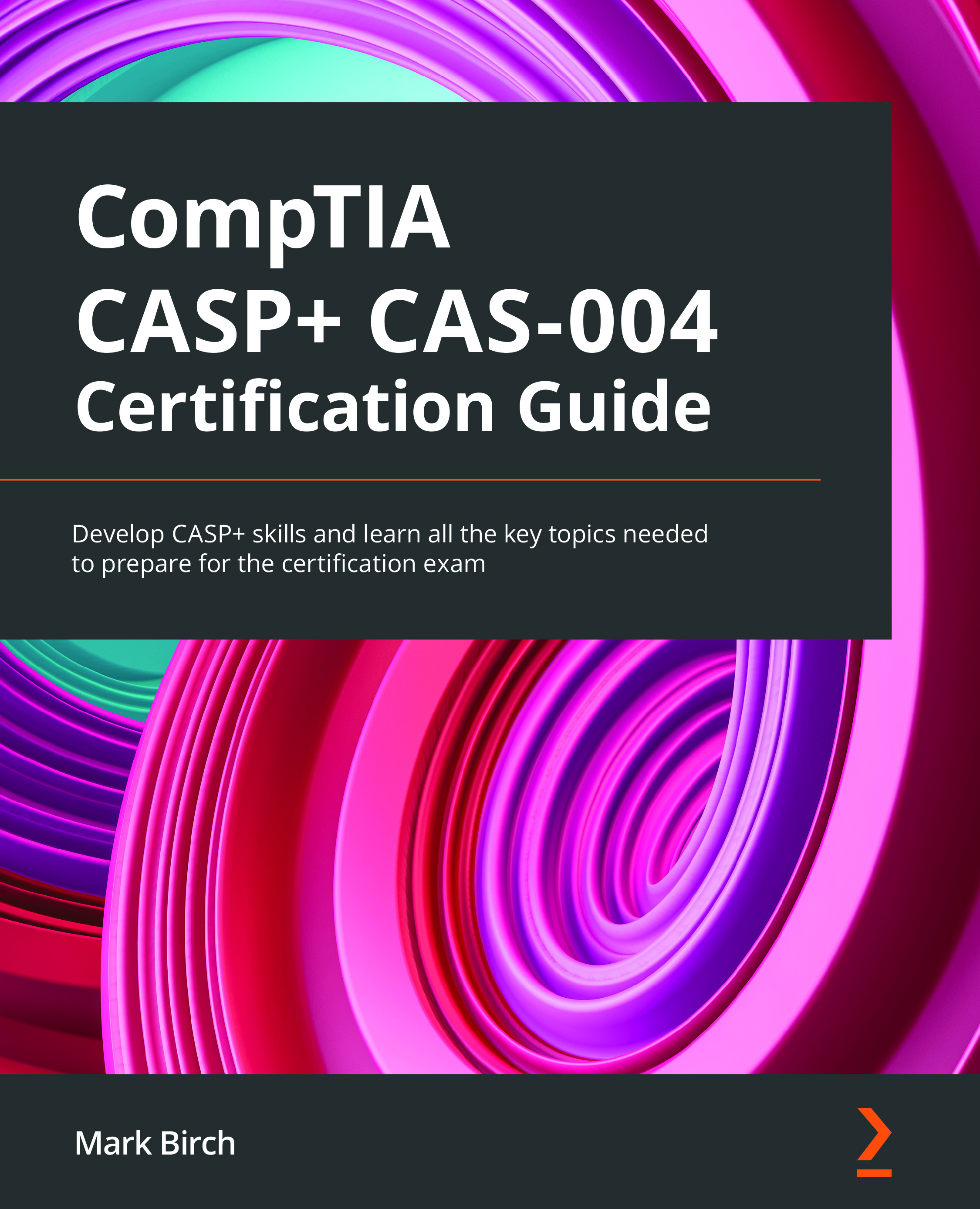-
Book Overview & Buying

-
Table Of Contents

CompTIA CASP+ CAS-004 Certification Guide
By :

CompTIA CASP+ CAS-004 Certification Guide
By:
Overview of this book
CompTIA Advanced Security Practitioner (CASP+) ensures that security practitioners stay on top of the ever-changing security landscape. The CompTIA CASP+ CAS-004 Certification Guide offers complete, up-to-date coverage of the CompTIA CAS-004 exam so you can take it with confidence, fully equipped to pass on the first attempt.
Written in a clear, succinct way with self-assessment questions, exam tips, and mock exams with detailed explanations, this book covers security architecture, security operations, security engineering, cryptography, governance, risk, and compliance. You'll begin by developing the skills to architect, engineer, integrate, and implement secure solutions across complex environments to support a resilient enterprise. Moving on, you'll discover how to monitor and detect security incidents, implement incident response, and use automation to proactively support ongoing security operations. The book also shows you how to apply security practices in the cloud, on-premises, to endpoints, and to mobile infrastructure. Finally, you'll understand the impact of governance, risk, and compliance requirements throughout the enterprise.
By the end of this CASP study guide, you'll have covered everything you need to pass the CompTIA CASP+ CAS-004 certification exam and have a handy reference guide.
Table of Contents (23 chapters)
Preface
Section 1: Security Architecture
 Free Chapter
Free Chapter
Chapter 1: Designing a Secure Network Architecture
Chapter 2: Integrating Software Applications into the Enterprise
Chapter 3: Enterprise Data Security, Including Secure Cloud and Virtualization Solutions
Chapter 4: Deploying Enterprise Authentication and Authorization Controls
Section 2: Security Operations
Chapter 5: Threat and Vulnerability Management
Chapter 6: Vulnerability Assessment and Penetration Testing Methods and Tools
Chapter 7: Risk Mitigation Controls
Chapter 8: Implementing Incident Response and Forensics Procedures
Section 3: Security Engineering and Cryptography
Chapter 9: Enterprise Mobility and Endpoint Security Controls
Chapter 10: Security Considerations Impacting Specific Sectors and Operational Technologies
Chapter 11: Implementing Cryptographic Protocols and Algorithms
Chapter 12: Implementing Appropriate PKI Solutions, Cryptographic Protocols, and Algorithms for Business Needs
Section 4: Governance, Risk, and Compliance
Chapter 13: Applying Appropriate Risk Strategies
Chapter 14: Compliance Frameworks, Legal Considerations, and Their Organizational Impact
Chapter 15: Business Continuity and Disaster Recovery Concepts
Chapter 16: Mock Exam 1
Chapter 17: Mock Exam 2
Other Books You May Enjoy
